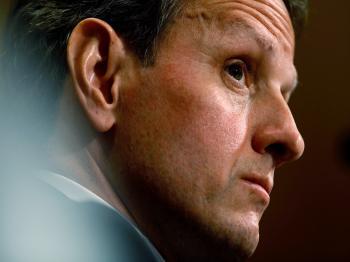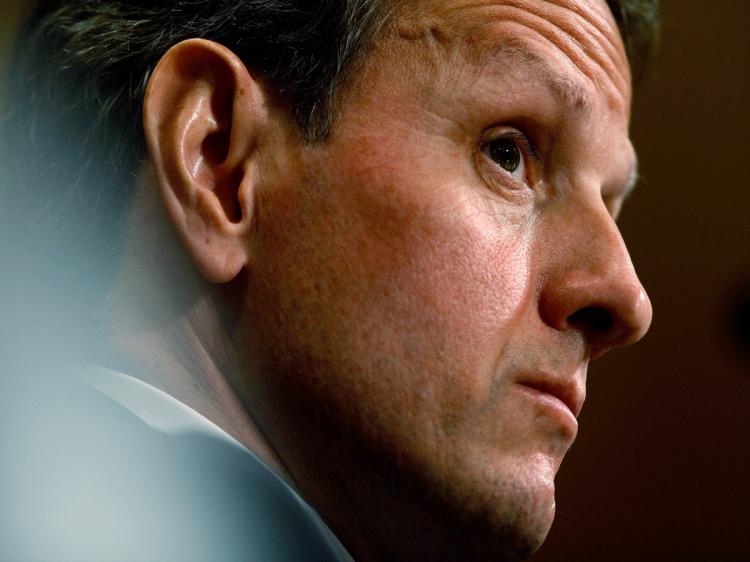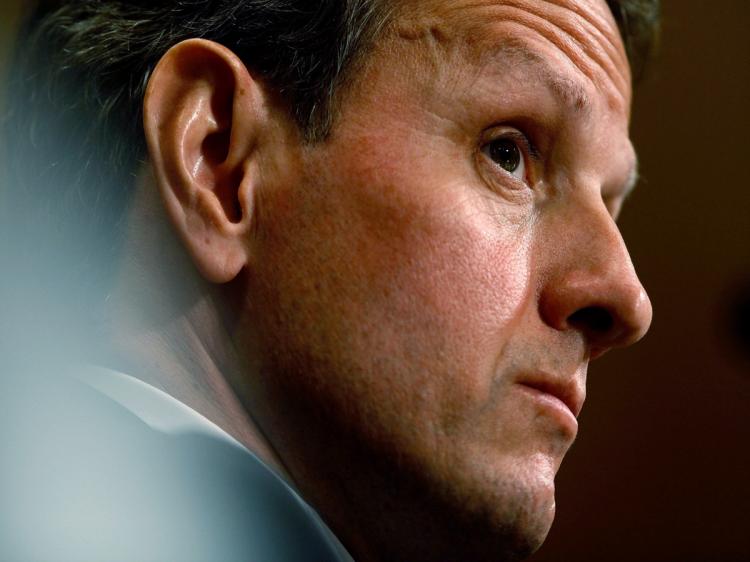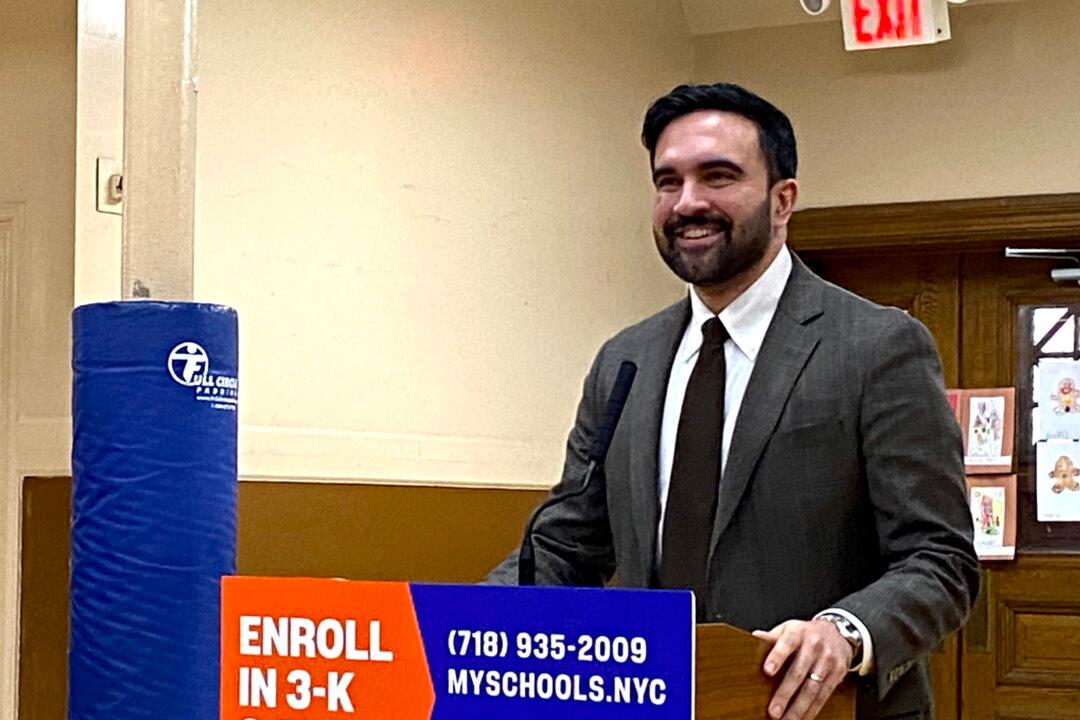WASHINGTON—Treasury Secretary Timothy Geithner encouraged senators to include Obama’s proposed fee on banks in financial reform legislation, speaking before the Senate Finance Committee Tuesday. Obama proposed a Financial Crisis Responsibility Fee in January to hold banks accountable for the money spent bailing out the economy.
Geithner said the fee targets institutions with assets or more than $50 billion and “excludes 99 percent of U.S. banks, which currently provide the majority of small loans to businesses and farms across the country.”
The treasury secretary said institutions will be assessed on the risk they pose to the system depending on the stable or risky nature of their funding sources. He said institutions that manage their assets more conservatively will be charged less.
Geithner said the fee will “complement efforts to improve stability of our financial system by providing modest incentives against funding riskier activities with less stable funding.”
At present finance reform legislation the Senate is considering does not include this financial crisis fee.
Both Democrat and Republican committee members questioned Geithner on whether the bank fee would reduce credit available to borrowers.
Senator John Kerry (D-Mass.) said the fee may affect small business by reducing available credit, reports The Hill. He quoted a Congressional Budget Office report that found a tax on banks taking extraordinary risks would reduce available credit at smaller banks.
American Bankers Association economist James Chessen also testified Tuesday before the committee calling the bank fee “an arbitrary tax on institutions of a certain size” and saying that the fee does not take into account the payments banks have already made to the government, which gave taxpayers a return on their investment.
In his prepared statement Chessen said the losses incurred by TARP (Troubled Asset Relief Program) come not from banks but from the other nonbank firms that TARP funds were funneled into.
Chessen quoted Assistant Secretary for Financial Stability Herbert Allison saying the government is making money from TARP funds that went to banks.
The assistant secretary recently testified before Congress that “Treasury now expects to make—not lose—money on $245 billion of investments in banks made through TARP programs.”
Chessen said losses on TARP come from investments made in nonbank industries such as the auto industry and AIG.
In his prepared statement Geithner said the Financial Crisis Responsibility Fee is to “make sure that the direct costs of TARP are paid for by the major financial institutions, not by the taxpayer.”
He did not indicate an intention to recover TARP funds strictly from the institutions that received the funding. These major financial institutions and their “combination of high levels of riskier assets and less stable sources of funding, were key contributors to the financial crisis,” said Geithner.
Geithner said the fee targets institutions with assets or more than $50 billion and “excludes 99 percent of U.S. banks, which currently provide the majority of small loans to businesses and farms across the country.”
The treasury secretary said institutions will be assessed on the risk they pose to the system depending on the stable or risky nature of their funding sources. He said institutions that manage their assets more conservatively will be charged less.
Geithner said the fee will “complement efforts to improve stability of our financial system by providing modest incentives against funding riskier activities with less stable funding.”
At present finance reform legislation the Senate is considering does not include this financial crisis fee.
Both Democrat and Republican committee members questioned Geithner on whether the bank fee would reduce credit available to borrowers.
Senator John Kerry (D-Mass.) said the fee may affect small business by reducing available credit, reports The Hill. He quoted a Congressional Budget Office report that found a tax on banks taking extraordinary risks would reduce available credit at smaller banks.
Fees Off Target
American Bankers Association economist James Chessen also testified Tuesday before the committee calling the bank fee “an arbitrary tax on institutions of a certain size” and saying that the fee does not take into account the payments banks have already made to the government, which gave taxpayers a return on their investment.
In his prepared statement Chessen said the losses incurred by TARP (Troubled Asset Relief Program) come not from banks but from the other nonbank firms that TARP funds were funneled into.
Chessen quoted Assistant Secretary for Financial Stability Herbert Allison saying the government is making money from TARP funds that went to banks.
The assistant secretary recently testified before Congress that “Treasury now expects to make—not lose—money on $245 billion of investments in banks made through TARP programs.”
Chessen said losses on TARP come from investments made in nonbank industries such as the auto industry and AIG.
In his prepared statement Geithner said the Financial Crisis Responsibility Fee is to “make sure that the direct costs of TARP are paid for by the major financial institutions, not by the taxpayer.”
He did not indicate an intention to recover TARP funds strictly from the institutions that received the funding. These major financial institutions and their “combination of high levels of riskier assets and less stable sources of funding, were key contributors to the financial crisis,” said Geithner.






